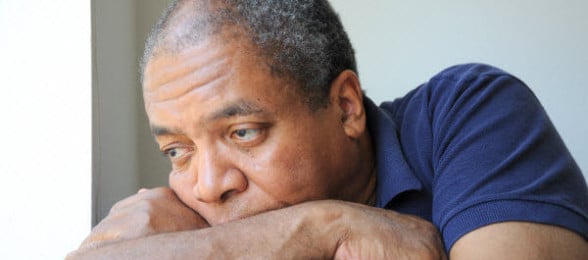Victor Makanjuola, the consultant psychiatrist at the University College Hospital (UCH), Ibadan, says “intelligent people” suffer more from depression and bipolar disorder and smartly hide the symptoms.
Makanjuola made this known to NAN on Saturday on the sidelines of a symposium to mark the World Family Doctor Day held at the hospital.
He said professionals and other high-level managers often decide to conceal their depression out of fear that it might jeopardise their jobs or social standing.
According to the expert, many sufferers of depression walk through life trying to conceal it with masking their symptoms and sometimes manifesting expressions such as a “happy face” that all is well.
“Professionals in particular, who could read and write determine what mode of suicide to employ in terminating their lives at the peak of concealed depression,” he said.
“For instance, the case of the medical doctor, who jumped into the Lagoon in Lagos in March, is a good illustration of what I mean. He was able to hide his depression from his family and even his driver.
“He also knew that the best and fastest type of suicide was jumping into the Lagoon from a bridge of about 35ft high.
“By the time he hits the water he would have been dead; his mode of suicide coupled with his ability to hide his depression made his plans to end his life effective and successful,” Makanjuola said.
On the use of bridges for suicide bids, the don said: “Bridges are common suicide sites all over the world. Before they hit the water base from such heights, their ribs and bones are already broken’
“They are dead on arrival at the water base.”
The psychiatrist advised members of the public to be very vigilant about people around them and report any untoward attitude to professionals without further delay.
Makanjuola listed some causes of depression as marital abuse, divorce, problems at work and access to dangerous drugs.
“Not getting attention from from the husband or wife is the most common. If a boyfriend or husband does not give attention to his spouse it could cause depression. Physicians must ask questions at all times.
“Some patients keep sleeping drugs prescribed for them at home for as long as four months and when they have enough tablets, they just take overdose that will make them to sleep off and die.”
He also said major disasters and negative events such as the death of a loved one could trigger depression.
“These include no promotion at work (stagnation), death of a loved one and major illness such as heart attack, stroke, management of diabetes in a patient as treatment of such ailments overwhelms people,” he said.
Makanjuola suggested talk therapy apart from seeking medical attention as talking to someone like a mentor would go a long way in dealing with the “black dog of depression”.
Copyright 2025 TheCable. All rights reserved. This material, and other digital content on this website, may not be reproduced, published, broadcast, rewritten or redistributed in whole or in part without prior express written permission from TheCable.
Follow us on twitter @Thecablestyle

